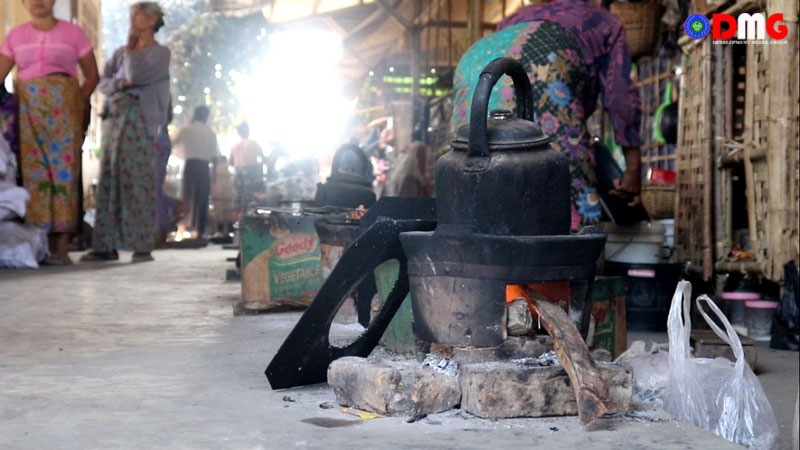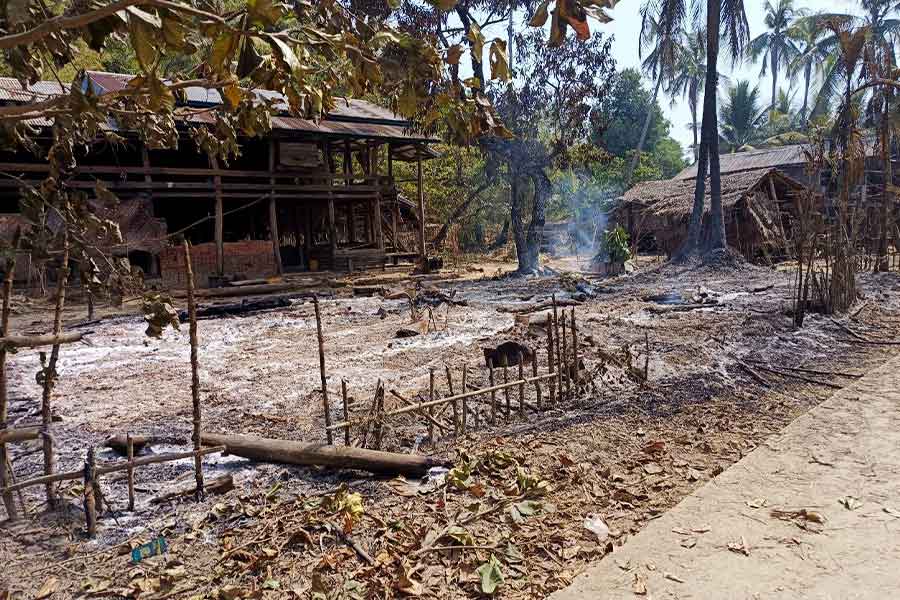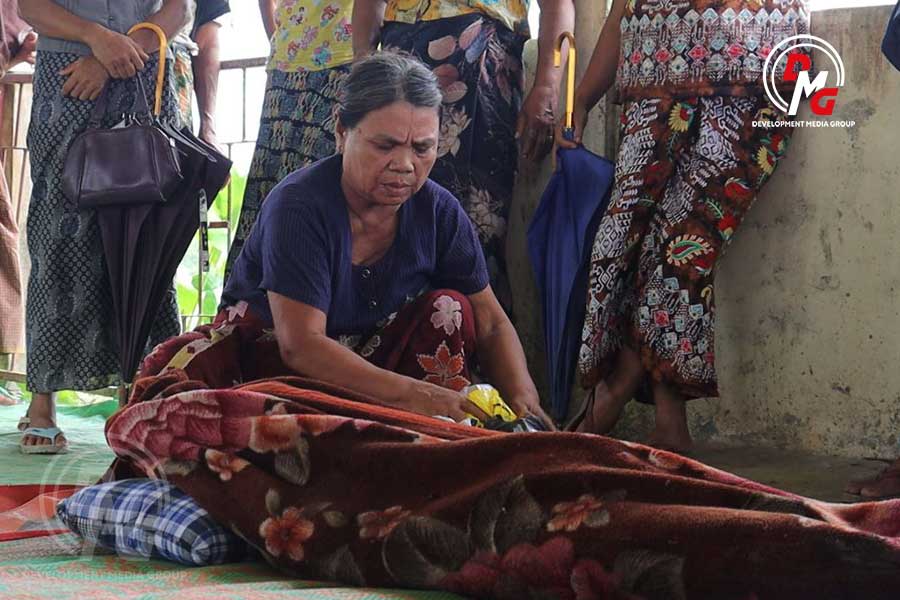- Regime steps up offensive toward Arakan State via Ayeyarwady coastal route
- Elderly IDP killed, two others injured in junta airstrike on Kyaukphyu village
- AAPP urges urgent international action as junta crimes against humanity escalate
- Photo News: Maha Ramayana Harinama Rama Festival marks 75th anniversary in Maungdaw
- ULA seeks to strengthen public healthcare services in Arakan State
Charcoal price rises in cyclone-hit Arakan State
The price of charcoal has also increased from K6,000 per sack to around K10,000 per sack now in Arakan State.
26 May 2023

DMG Newsroom
26 May 2023, Sittwe
After Cyclone Mocha made landfall in Arakan State, the prices of charcoal in some townships have risen to over K4,000 above normal, according to local residents.
The local people in Arakan State are mainly using charcoal for cooking due to lengthy power outages triggered by the devastating storm. The price of charcoal has also increased from K6,000 per sack to around K10,000 per sack now in Arakan State.
“Power outages were reported in Arakan State following the cyclone. So the price of charcoal has increased by over K4,000 per sack. We have to buy and use charcoal for cooking,” said Daw Hsan Yi, a resident of Sittwe.
Local people in storm-affected Sittwe, Ponnagyun, Rathedaung, Maungdaw, Kyauktaw, Mrauk-U, Minbya and Pauktaw townships are experiencing power outages and poor telecommunications access.
“Commodity prices in Mrauk-U were not so bad when compared to Sittwe. All commodity prices have drastically increased after the storm. The price of charcoal has risen by K5,000 per sack,” said Ma Khin Myo Htay, a local woman in Mrauk-U.
As a result of the storm, many businesses in Arakan State were damaged, and charcoal producers were also having difficulties in production due to destroyed workplaces.
“The price of charcoal will increase because we have to buy it from rural areas. Otherwise, it’s not convenient for us. I think the price of charcoal is going up because charcoal producers are having difficulties,” said U Nga Lone Aung, a charcoal seller in Mrauk-U.
A total of 1,156,796 people were affected by the cyclone and accompanying flooding in Arakan State, with financial losses totaling nearly K4.7 billion, the junta’s Arakan State Administration Council said on Friday.
The storm victims are facing difficulties accessing food, shelters, clean drinking water and medicine. In addition, the storm victims are facing skyrocketing commodity prices and lengthy power outages.















.jpg)

